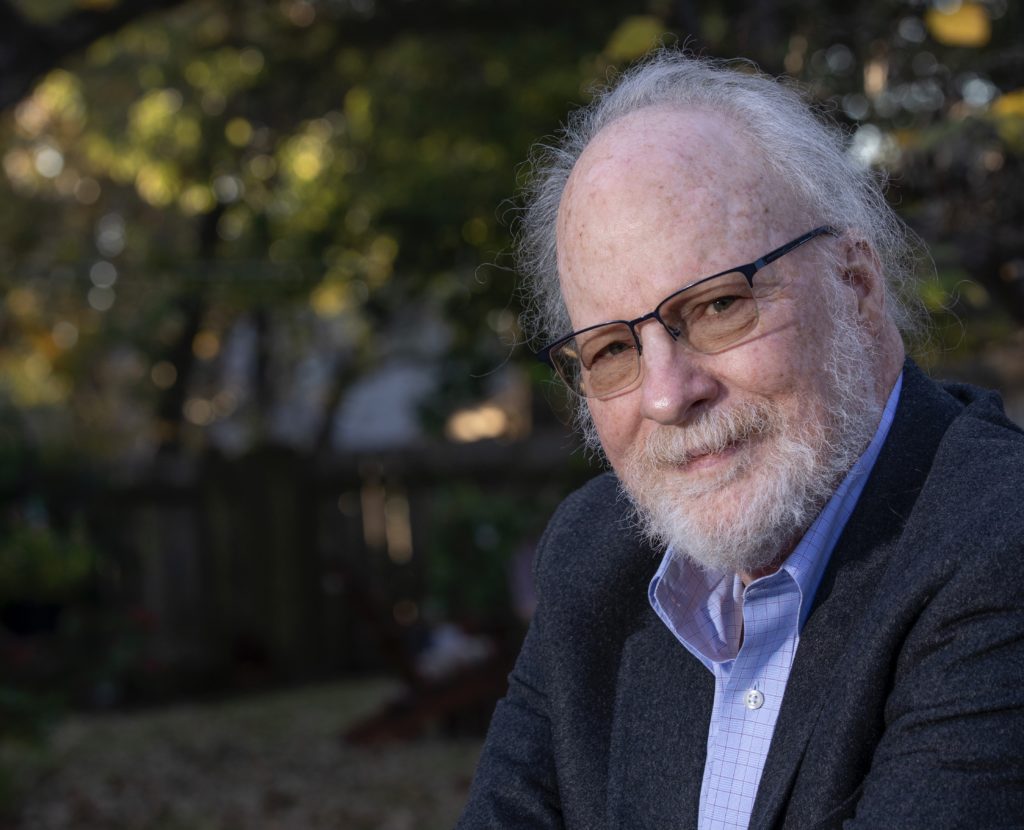
Osler McCarthy
For the past two decades, Osler McCarthy has been a trusted voice of appellate law in Texas – informing lawyers, judges, members of the news media and the public on the cases being decided by the nine justices who sit on the Supreme Court of Texas.
This week, Osler – educated as a lawyer and trained as a journalist – joins The Texas Lawbook fulltime as managing editor and head of the publication’s appellate law coverage.
Osler spent 20 years as a legal journalist and editor for the Austin American-Statesman, The Kansas City Star and a handful of other newspapers before he joined the Texas Supreme Court in 1999 as its staff attorney for public information, where he published multiple emails weekly about cases pending before the state’s highest court.
More than 3,000 people subscribed to Osler’s dispatches and depended on him to keep them informed about upcoming oral arguments and court decisions.
“If you are an appellate lawyer or judge in Texas, Osler and his emails have been essential reading for 20 years,” said Anne Johnson, an appellate law partner at Haynes and Boone in Dallas.
Osler, a 1990 graduate of the Gonzaga University School of Law, joins a Texas Lawbook team that now includes eight reporters and editors in Austin, Dallas and Houston. The Lawbook focuses on publishing unique, substantive and thoughtful content about business lawyers and business law – litigation, regulatory, transactional and legal industry trends – in Texas.
With more than 13,000 paid subscribers – including more than 2,800 corporate in-house subscribers – and content partnerships with the Dallas Business Journal and the Houston Chronicle, which frequently republish Texas Lawbook articles, The Lawbook is the most influential voice for business law in Texas.
For more than a decade, I have searched for ways to convince my friend Osler to join me in this Texas Lawbook venture and adventure. The timing was never right. Until now. No one is happier than I am to announce officially that Osler is joining the Lawbook team.
I met Osler in 1998. I was covering the tobacco litigation, and we were both in Texarkana where the State of Texas had sued Phillip Morris, R.J. Reynolds Tobacco and other cigarette makers for $15.3 billion. Osler was with the Austin American-Statesman, and I was the legal writer for The Dallas Morning News.
From the first meeting with Osler, I was impressed. He didn’t need to tell me he was a lawyer for me to know that he was a formidable competitor and an excellent reporter.
As managing editor and head of appellate coverage, Osler will run the day-to-day news operations of The Lawbook. His mission is twofold: Work with our reporters to make each of us better and significantly improve the publication’s coverage of appellate courts.
In a lengthy Q&A that The Lawbook will publish later this week, Osler said his legal training, including time as a criminal defense and appellate lawyer, gave him the experience needed to be a good legal journalist.
“I approached my role with the court as a journalist. I thought that was critical in the beginning,” he said. “I still do, whether you speak the journalists’ language or understand their problems. Having covered the court for the Austin American-Statesman, I knew the difficulties reporters faced: How to follow issues the court was considering for argument, how to calculate when a case will be decided. And more specifically I relied on my training as an editor to reduce a 20- or 30-page or greater opinion to three or four paragraphs and prayed I had a summary that made sense.”
Osler has a desire to make understanding of the law accessible to everyone – not just lawyers. And that commitment fits nicely with The Lawbook’s partnerships with the Houston Chronicle and Dallas Business Journal.
“In the law, court opinions heartily adopt from the briefs the gobbledygook legal authors think of as shortcuts – they imagine – to avoid using – god forbid! – a phrase or descriptor again to be clear instead of incomprehensible to lay and legal readers alike,” he said. “Lawyers and judges should write for Mabel, that little old lady in Plainview who wouldn’t know a law degree from a GED and pays taxes and ought to be privy to what the law may be doing to her.”
“The press generally covers the law and courts as politics,” he said. “Maybe I’m naïve, but I watched for more than 20 years good judges grapple with hard legal questions. The law can be covered in its sophistication without sacrificing its drama by writing about its issues and its players.”
I welcome you to welcome Osler to The Lawbook team: osler.mccarthy@texaslawbook.net. The full Q&A with Osler will publish later this week.
